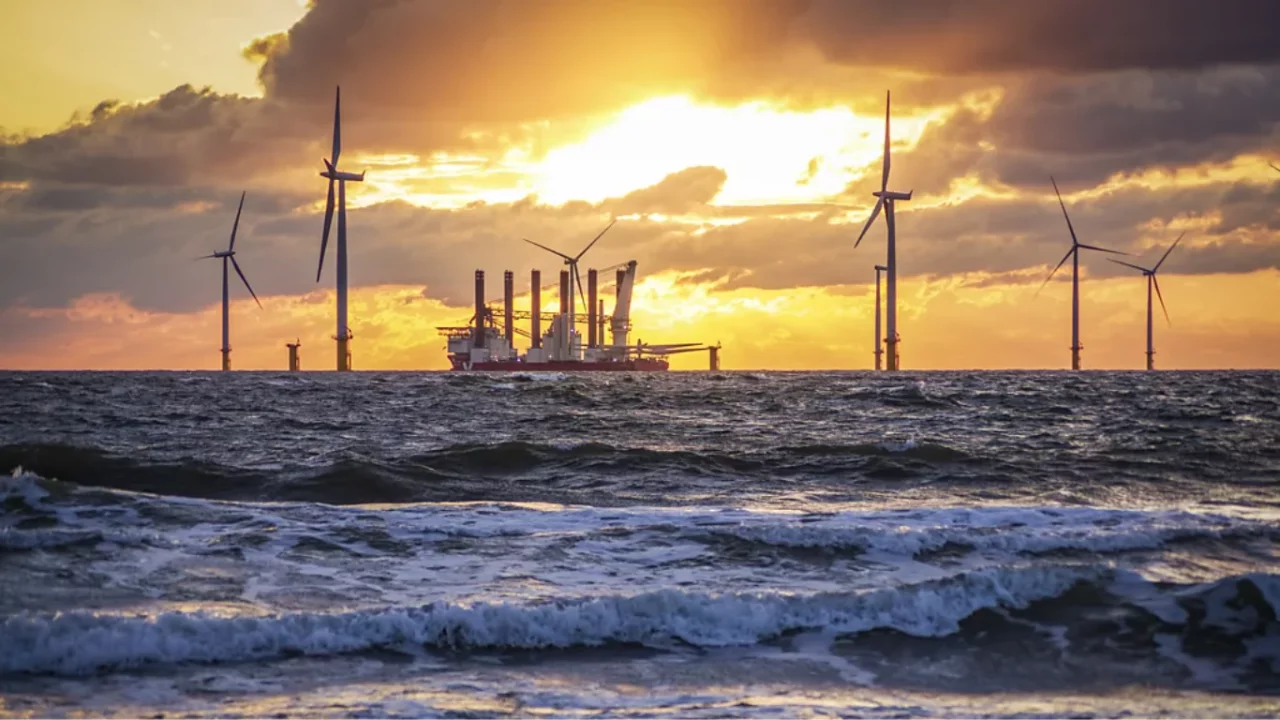“Wind Theft”: A New Problem Emerging at Wind Power Stations

As wind energy develops around the world, a new issue is emerging with the increase of offshore wind power stations: some wind farms are weakening the wind for others, reducing their energy output. This phenomenon is scientifically known as the “wake effect.”
Wind turbines get energy directly from the airflow. This process, in turn, causes a reduction in wind speed. Behind each turbine, a slower airflow forms compared to the previous one. In this way, an entire wind farm can significantly slow down the wind stream. Peter Baas, a researcher from the Dutch company Whiffle, states that this effect can stretch up to 100 kilometers — especially in large, densely packed offshore farms.
If another farm is located downstream from such a farm, its electricity generation potential can drop by 10% or more. This process is informally referred to as “wind theft.” However, this term is inaccurate: wind does not belong to anyone and is not subject to ownership rights.
The wake effect is not new to science. However, the rapid expansion and densification of offshore wind farms have made this problem more urgent. Especially as European countries — particularly the UK, the Netherlands, Denmark, and Norway — are relying on offshore wind resources to reach their “net zero” goals.
Pablo Ouro, a researcher at the University of Manchester, says: “By 2030, we need to install three times as many offshore turbines as we currently have. This means thousands of new turbines must be built within the next five years. At the same time, they will be located very close to each other, and the impact of the wake effect will increase.”
Today, a single large turbine can supply electricity to 18,000–20,000 average European households. But this achievement increases the risk of the wake effect, as larger blades slow down the wind over a longer distance.
Already, several wind farms in the UK have experienced disputes due to the wake effect. But in the near future, these disputes could escalate to the international level — for example, between the UK and the Netherlands or Denmark.
Norwegian lawyer Eirik Finseras analyzed in his research that the wake effect from a planned farm in Norway could affect a farm located in Danish territory. He emphasizes the need for legal frameworks to regulate such situations. “Wind should be regulated as a common resource — like fish stocks or oil fields,” he says.
The “race” for wind resources — the desire to occupy the most favorable spots — further complicates the issue. This approach may jeopardize environmental protection, regional balance, and long-term sustainability.
Experts like Finseras and Ouro recommend introducing interstate cooperation and clear regulatory mechanisms. This way, each project can be implemented not only based on national interests but also by considering neighboring countries and ecological stability.
In addition, new scientific projects — including research launched this spring in the UK to model the wake effect — aim to find solutions through a scientific approach. Read “Zamin” on Telegram!
Ctrl
Enter
Found a mistake?
Select the phrase and press Ctrl+Enter 




















